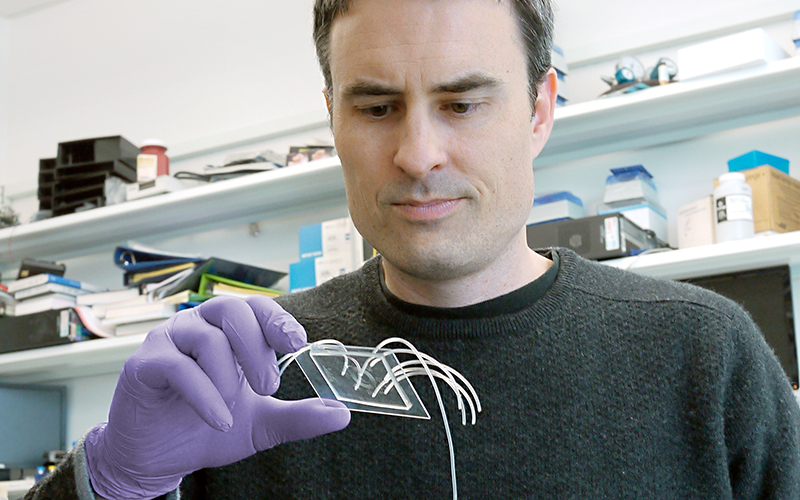The Master of Science (M.S.) in Regulatory Science provides graduates with the knowledge and skills necessary to contribute to drug regulation and pharmaceutical product lifecycles.
Applications for this exclusively online program are now being accepted, until June 30. Fall semester begins August 25.
Who Should Apply to the Master of Science (M.S.) in Regulatory Science Program?
This online program is primarily designed for working professionals with Bachelor of Science (BS) degrees who now work in (or would like to work in) regulatory science in industry or government. Working professionals include regulatory affairs associates, scientists in research or development, and clinical associates in clinical affairs or marketed-product support.
What Will I Learn in the Master of Science (M.S.) in Regulatory Science Program?
Graduates of this program will be fluent in the science of developing new tools, standards, and approaches to assess the safety, efficacy, quality, and performance of FDA-regulated products. They will possess the knowledge and skills needed to:
- Devise and implement global strategies for drug, biologic, and device development and evaluation
- Differentiate USA and other regional requirements for drug product development and registration
- Apply principles of basic and applied pharmaceutical sciences in drug discovery and development
- Formulate critical elements of CMC to drug development
- Relate principles of clinical research design to practices in clinical trial management
- Apply critical methods of risk assessment and drug utilization from pharmacoepidemiology and post-marketing surveillance, and evaluate economic and sociodemographic factors that influence drug use
With the knowledge and skills obtained through this program, graduates will have access to a number of opportunities in drug research and development, including but not limited to:
- Regulatory science/affairs positions at pharmaceutical companies, as well as device and biotechnology companies
- Regulatory science/affairs positions at government agencies, such as the Food and Drug Administration (FDA), National Institutes of Health (NIH), Department of Defense, Biomedical Advanced Research and Development Authority, and the Centers for Disease Control (CDC)
- Admission into Ph.D. programs
Individuals who wish to learn more about the M.S. in Regulatory Science program at the University of Maryland, Baltimore and the Certificate program at the University of Maryland, College Park are invited to view an online
informational video.

